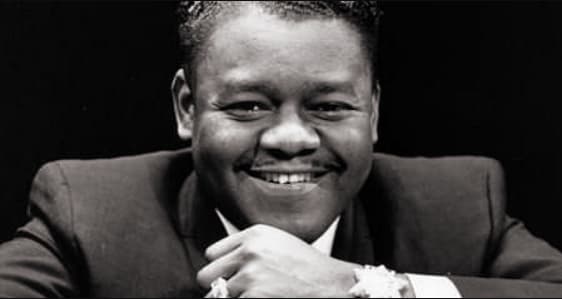
The Unassuming Anthem of the Cotton Fields and the Birth of Rock and Roll
A boogie-woogie romp about a devastating agricultural pest, masking the rhythm and blues roots of a burgeoning new sound.
There are some songs, my dear friends, that just smell like a certain time and place, don’t they? They’re not just records; they’re time capsules etched in vinyl. Such is the case with Fats Domino‘s infectious 1956 hit, “Bo Weevil.” It’s a track that instantly transports you back to the vibrant, formative years of rock and roll, a time when the lines between rhythm and blues, boogie-woogie, and what the kids were calling “rock” were delightfully, emphatically blurred.
Released as a single by Imperial Records in January 1956, “Bo Weevil” quickly solidified Fats Domino‘s status as a major cross-over star. While he was already a titan of R&B, this song successfully marched up the popular charts, reaching number 35 on the Billboard Hot 100 chart and climbing to a strong number 5 on the R&B chart in February of the same year. This remarkable chart performance is a testament to the irresistible charm of Antoine “Fats” Domino; his gentle, warm, and utterly unthreatening style of rock and roll was palatable to a mass audience just as the genre was igniting controversy. You can find this classic track on his landmark 1956 album, Rock and Rollin’ with Fats Domino, a title that couldn’t be more fitting for the joyful energy contained within.
But what, you might ask, is a “bo weevil?” And why is this song so full of infectious energy about such an unlikely subject? The song is about the boll weevil (Anthonomus grandis), a small, armored beetle that migrated from Mexico and became the single most destructive pest of cotton crops in the American South. This little critter was no joke; it decimated the cotton industry in the early 20th century, profoundly affecting the economy and lives of millions. The boogie-woogie piano beat and Fats Domino’s laid-back, amiable vocals seem almost too cheerful for a song about agricultural disaster, but there’s a deep, often overlooked tradition here. The subject of the boll weevil had been a staple in blues music for decades, sung about by pioneers like Charley Patton and Ma Rainey. These older blues songs often personified the weevil, using it as a metaphor for the struggle against insurmountable forces—be it poverty, debt, or just bad luck.
Fats Domino, along with his longtime collaborator, the brilliant Dave Bartholomew (who co-wrote the tune), took this historical blues subject matter and transformed it. They smoothed out the rough edges of the old blues, poured a healthy dose of New Orleans rhythm over it, and baked it in the oven of Domino’s signature rolling piano sound. The result is something profoundly upbeat. It’s a quintessential example of Domino’s genius: taking a weighty or traditional theme and filtering it through a sound so optimistic and danceable that it simply lifts your spirits. His version is less about the weevil’s destruction and more about the catchy, almost childlike narrative of the weevil moving from town to town, “lookin’ for a home.” The way he rolls out those New Orleans piano triplets is pure magic—a sound that, for so many of us, defines the heart of 1950s American music. Listening to “Bo Weevil” today is like visiting an old, familiar friend, a reminder of a simpler, more innocent, yet intensely musical time.